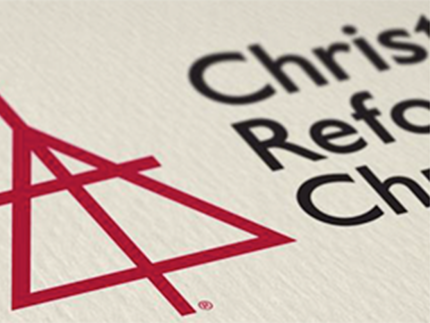Summary of the History behind the Guidelines for Gravamina

The Office of General Secretary received many questions from CRC officebearers and churches about gravamina last fall and we are aware that several overtures are being considered by the classes. As part of our effort to serve CRC congregations and officebearers, we are making research available to assist classes, congregations, and officebearers in their discussions. See also “Gravamen: What It Is and How to Use It”
The “Guidelines and Regulations re Gravamina” in the Supplement to Church Order Article 5 were adopted in 1976. The Harry Boer case, which was also dealt with by synod that year, was not the first confessional-difficulty gravamen. Henry De Moor, in his Christian Reformed Church Order Commentary (pp. 48-49), writes of the Dietrich H. Kromminga case in 1947, in which that officebearer's gravamen went all the way to synod. It is also referenced in the Agenda for Synod 1976 (pp. 563ff).
There have been other confessional-difficulty gravamina as well, though because they are local, they have not been reported. For example, Dr. Alvin Plantinga submitted a gravamen to South Bend CRC in which he exempted what the Canons of Dort have to say about election and reprobation from his endorsement of the confessions, and it was accepted, and he was allowed to serve as an elder. I don't know the year in which that occurred, but I know from his brother and family that this did occur (and they have given their permission to mention this fact).
Synod 1976 adopted and placed the guidelines for gravamina in the Church Order Supplement in response to a report from a study committee regarding Revision of the Form of Subscription (see Acts of Synod 1976, pp. 66-70, 550-91). It is important to note, as well, that not only was there no reference to confessional-difficulty gravamina in the Church Order prior to 1976, there was no mention of confessional-revision gravamina either—the word gravamen had not previously been in the Church Order at all.
In 1976 the study committee for the Revision of the Form of Subscription reported to synod (with one majority and two minority reports), and out of the process of consideration by synod's advisory committee, the guidelines for gravamina were proposed to and adopted by synod.
The Boer case, which communicated a concern about the Canons of Dort, was a separate matter, but it did coincide with the study committee that had been working already for several years, beginning with overtures to Synod 1973, one of which asked for a new Form of Subscription, and one of which “sought by way of addenda to the present Form of Subscription to satisfy the procedure for the revealing of difficulties and different sentiments” (Acts of Synod 1976, p. 67). Boer was the author of one of those overtures (Acts of Synod 1973, pp. 729-31), so the two matters were related.
After Synod 1976 adopted the guidelines for gravamina that we now have in the Supplement to Church Order Art. 5, it took up a communication that Dr. Boer had submitted to Synod 1975 and determined that while it had not been submitted as an appeal or a gravamen but as a communication with a question in it about the Canons of Dort, it should be treated as a confessional-difficulty gravamen—one of the two categories synod had just adopted. Synod also said that Boer's matter should be dealt with personally and pastorally and was not open to discussion in the church. Only if Boer were to submit a confession-revision gravamen would an open discussion in the assemblies occur.
So the decisions of Synod 1976 provide some background for understanding the guidelines for gravamina in the Supplement to Article 5. Synod 2024 further clarified the process for gravamina, explaining that they are not intended to be used an exception to a belief and that they should be time-limited. The Boer case is certainly a unique case. Whether it applies to the situation in which Synod 2022 added an interpretation of a confession to the requirements of signing the Covenant for Officebearers is questionable. Boer was not responding to any such action by a synod.
At the very least, the Boer proceedings over many years and the adoption of the gravamen process during those years show a denomination that realized that being a confessionally-vigorous church required mechanisms for honest theological dialogue and mutual respect within a broader framework of confessional fidelity.
Some additional historical notes from various Acts of Synod:
- Boer submitted an overture to Synod 1973 asking for a new Form of Subscription. Interestingly, he wanted it to be renamed “The Ordination Covenant” (Acts of Synod 1973, pp. 729-31) long before the current “Covenant for Officebearers” was adopted in 2012, replacing the long-used Form of Subscription. Boer’s main concern was that the process for considering gravamina and confession revisions was completely done in the assemblies and did not involve the members of the church, to whom are also given a responsibility for confessional integrity. Further, he was concerned that the Form of Subscription was not clear as to whether an officebearer was free to speak publicly about his view after submitting a gravamen or only after synod had adjudicated the gravamen.
- Boer had first submitted his overture to Classis Chicago South, but they did not adopt it because they did not think a new Form of Subscription was needed. However, they agreed with his concern about the involvement of the church and sent their own overture to synod on that point (Acts of Synod 1973, pp. 720-21). Synod’s advisory committee agreed and proposed changes to the Form of Subscription. The recommendations were adopted, but because this decision involved substantive matters having to do with the confessions, synod submitted the changes for ratification by Synod 1974 (Acts of Synod 1973, pp. 96-100).
- Synod 1974 received 21 overtures and communications about this matter and did not adopt the proposed changes to the Form of Subscription but postponed action on the ratification of changes and appointed a study committee to report in 1976 (Acts of Synod 1974, pp. 101-105).
- Synod 1975 received a communication from Boer in which he expressed concerns about the Canons of Dort’s teachings on reprobation. Synod said his concern was legitimate but appointed a committee to determine how synod should deal with communications that are not appeals or gravamina(Acts of Synod 1975, pp. 105-106).
- Based on the recommendations of the committee appointed to evaluate Boer’s communication, Synod 1976 declared that Boer’s communication was a confessional-difficulty gravamen, after adopting a recommendation to identify two types of gravamina, and decided that a confessional-difficulty gravamina should be dealt with personally and pastorally (Acts of Synod 1976, pp. 75, 621-25).
- Synod 1976 also approved the work of the synodical deputies in concurring with the decision of Classis Illiana not to accede to the Lynwood CRC consistory’s request to depose Harry Boer (Acts of Synod 1976, p. 80).
- The study committee appointed by Synod 1974 regarding the revision of the Form of Subscription recommended that Synod 1976 not ratify the changes proposed by Synod 1973, partly because those changes assumed all gravamina were requests for revision of the confessions, whereas some are personal difficulties that should not be open for discussion in the church. Most of the input they had received to the proposed addition in 1973 was negative. The committee recommended guidelines for gravamina to be added to the Supplement to the Church Order that contains the Form of Subscription. There were two minority reports to synod in addition to the majority report (Acts of Synod 1976, pp. 550-91). Synod adopted the recommendations of the committee (Acts of Synod 1976, pp. 66-70).
- Harry Boer decided to submit a confessional-revision gravamen to synod, which came to Synod 1977 (Acts of Synod 1977, pp. 664-79). Synod decided to appoint a committee to look into it and report to Synod 1980 (Acts of Synod 1977, pp. 132-33).
- Synod 1980 received the report of the committee assigned to consider Boer’s gravamen. They did not find cause to revise the confessions (Acts of Synod 1980, pp. 73-76), concluding that the Canons of Dort do not teach what Boer was concerned about regarding the doctrine of reprobation. The Canons do teach that some are elect and some are not, but they do not teach that God causes some to not believe and therefore are subject to eternal damnation (see also Acts of Synod 1980, pp. 486-558).
compiled by Kathy Smith, adjunct professor of church polity at Calvin Theological Seminary


